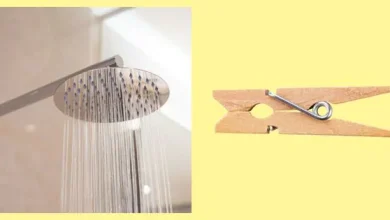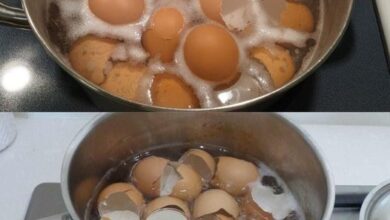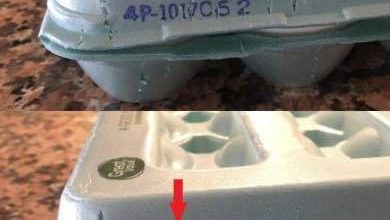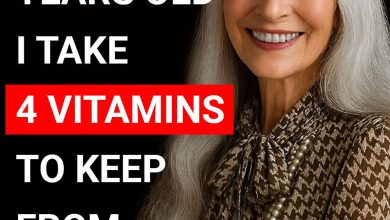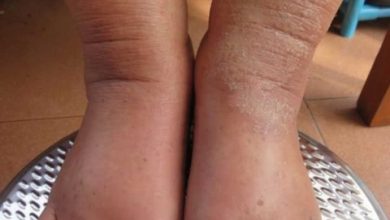10 Reasons You’re Drooling While You Sleep and What It Could Mean

Understanding Why You Might Be Drooling in Your Sleep and What It Could Mean for You
ADVERTISEMENT
It’s important to understand that “drooling while you sleep is typically not a health concern whatsoever.” In fact, it’s quite common for many people. However, it can sometimes feel a bit embarrassing, especially if it happens when you’ve fallen asleep in a public place like “on a bus, airplane, or on your mother-in-law’s new couch.” While usually harmless, “drooling while you sleep can also indicate that perhaps there is something else going on with your health that you should be having checked out by a medical professional.” Let’s explore some of the common reasons why you might experience drooling during sleep, discuss what you can do about it, and help you understand when it might be a good idea to talk to a doctor.
ADVERTISEMENT
10 Common Reasons for Drooling While You Sleep
ADVERTISEMENT
There are many different reasons why you might find yourself drooling while you’re asleep. Some people only experience it during short naps, while others find “waking up to a wet spot on the pillow is just a run-of-the-mill morning.” Often, these reasons are nothing to worry about. However, there are certain health situations that can lead to drooling during sleep, and these are worth discussing with your doctor. Here are ten of the most frequent reasons for this happening:
-
Your Sleep Position: When you’re sleeping, your mouth naturally produces more saliva to help protect your gums and the inside of your mouth. At the same time, the muscles in your body relax, including those in your face and jaw. If you tend to sleep on your side or your stomach, it becomes easier for this extra saliva to simply flow out of the sides of your mouth. This is even more likely to occur if your nose feels blocked up. When your nose is congested, you might “subconsciously sleep with your mouth slightly open in order to breathe better during the night.” Because of this, you might only notice drooling when you have an allergy problem or a cold.
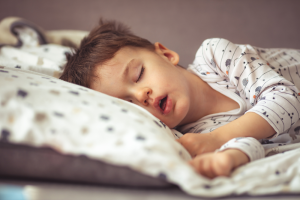
-
Side Effects of Medications: Certain medicines can have drooling as a side effect. This can include things like sedatives (which help you relax), antipsychotic drugs (used for certain mental health conditions), and even some antibiotics (used to fight infections). Interestingly, some common pain relievers called NSAIDs, like “ibuprofen,” can also lead to drooling while sleeping. It’s important not to stop taking any prescribed medications on your own. However, “if it is bothering you, speak to your doctor about it.” They might be able to suggest a different medication or adjust your dose to help stop this from happening.

-
Nasal Congestion: As we mentioned earlier, “if your nose is stuffed up, then you will be forced to sleep with your mouth open.” This stuffiness can be caused by a simple cold, allergies, or other things. There are medications that can help with allergies and clear up a stuffy nose. However, “make sure to consult your doctor before taking them.” Often, these conditions are temporary, “and therefore so will be the drooling.” It might not always be necessary to take medication for something that isn’t really affecting your health in a big way and will go away once your cold is over or allergy season ends.

-
Deviated Septum: Inside your nose, there’s a thin wall of cartilage called the septum that separates the two nasal passages. If this wall is not perfectly straight and is “at all off-center,” it can make it harder to breathe through your nose, especially at night. This blockage can lead to breathing through your mouth, which can then cause drooling during sleep. There are surgical procedures that can fix a deviated septum. However, “it is important to speak to your healthcare provider to determine if this is right for you.”

-
Sleep Apnea: Sleep apnea is a condition where your breathing repeatedly stops and starts during sleep. This can lead to breathing through your mouth and producing more saliva, which can result in drooling. It can be difficult to know if you have sleep apnea on your own. Other signs can include “loud snoring and sounds of choking.” You might also find that you often “wake up not feeling well rested.” Sleep apnea can affect not only your own health but also the sleep of those around you, so “it is important to consult your doctor about your options for overcoming it.”

-
Infection or Dental Problems: An infection in your mouth or gums, even something like a cavity, can make your mouth produce more saliva, leading to drooling. If you have an infection, you might notice pain, especially when you eat, swallow, or talk. You could also experience swelling or see “blood while brushing your teeth.” “If you think you have an infection it is crucial that you visit your doctor or dentist as soon as possible to solve the problem.”

-
Gastroesophageal Reflux Disease (GERD): GERD is a condition that often causes stomach acid to come back up into your esophagus, which is known as acid reflux or heartburn. GERD can also sometimes lead to difficulty swallowing, called dysphagia. This can cause your body to produce more saliva, resulting in drooling while you sleep. This is another condition where there are often solutions available, so “speak to your doctor if you have frequent heartburn and are drooling while sleeping.”

-
Neurological Conditions: Certain health conditions that affect the nervous system can make it harder to swallow properly, leading to increased saliva and drooling during sleep. These conditions can include “stroke, Parkinson’s disease, Alzheimer’s, Huntington’s disease, Bell’s Palsy, Cerebral Palsy, ALS, and brain damage.” Interestingly, even a “vitamin B12 deficiency can also lead to drooling issues.” This is because a lack of B12 can sometimes cause neurological problems, which can then affect saliva control.

-
Teeth Grinding: “Nocturnal bruxism (teeth grinding at night) and wearing a mandibular device” (a type of mouthguard) can sometimes be linked to drooling during sleep. If you know you grind your teeth at night, “it is important if you grind your teeth while sleeping that you don’t stop wearing your night guard.” Instead, “speak with your healthcare provider if your drooling is becoming a problem and they can work with you to find solutions.”
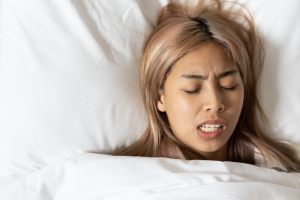
-
Pregnancy: Some women experience increased saliva production during pregnancy, a condition known as “ptyalism gravidarum,” which can lead to more drooling while sleeping. Other reasons for increased drooling during pregnancy could be “due to increased stress due to the upcoming life change, swollen salivary glands, and difficulty sleeping,” which can be caused by both mental and emotional stress as well as physical discomfort.

6 Things You Can Try to Reduce Drooling While Sleeping
If you find that your drooling is becoming excessive and you want to do something about it, there are several things you can try. Some of these are things you can do yourself at home, while others might require help from healthcare professionals or other experts.
-
Change Your Sleep Position: As we discussed earlier, one of the main reasons people drool at night is because “they are sleeping on their side or stomach.” One way to try and prevent this is to train yourself to sleep on your back instead. “If you are a dedicated side or stomach sleeper, this may take some time to get used to.”
-
Simple Home Care for Saliva Balance: Keeping a healthy amount of saliva in your mouth is important. Some simple things you can try at home to help reduce drooling include gently biting on a lemon wedge, as some believe this can help thin out your saliva. Also, making sure you “stay hydrated by drinking water regularly” can be helpful. It’s worth remembering that “home remedies often don’t really have much science or research to back them up.” You can try these, but don’t be surprised if they don’t make a big difference. Also, be careful with lemons and other citrus fruits, as they can be hard on the enamel of your teeth and your gums.
-
Using a Mandibular Device: You might consider using a mandibular device. This is “an oral appliance similar to a mouthguard” that can help improve your comfort during sleep and potentially reduce both drooling and snoring. These devices can sometimes be bought online or in specialized medical supply stores. “Using a mandibular device may help keep your mouth closed during sleep, reducing the chances of drooling.”
-
CPAP Machine for Sleep Apnea: If your drooling is related to sleep apnea, using “a continuous positive airway pressure (CPAP) machine may help you put an end to it.” As an even more important benefit, it will also help treat your sleep apnea. “A CPAP machine helps maintain proper breathing and sleep patterns during the night.” This can not only help you breathe better and sleep more soundly but “it may reduce your drooling as well.” It’s best to talk to a sleep apnea specialist to get guidance on how to use a CPAP machine effectively.
-
Botox Injections: Believe it or not, “botox isn’t just for cosmetic reasons – it can help reduce drooling, too.” For some people who want a more direct way to manage excessive saliva, Botox injections can be an option. Injecting small amounts of Botox into the saliva glands around your mouth can temporarily reduce how much saliva they produce. However, “it is important to note, however, that this treatment is not permanent and will need to be repeated.” It’s also very important to “consult a licensed professional,” as having this done by someone without the proper training “can be detrimental to your health and wellbeing.”
-
Surgery as a Last Option: In very serious cases where other treatments haven’t worked, a doctor might suggest surgically removing some of the saliva glands. “This option is typically reserved for individuals with underlying neurological conditions that contribute to excessive drooling during sleep.” Doctors usually “won’t do this for those who simply are drooling while sleeping and want it to stop.” While “surgery can be an effective solution for managing hypersalivation, it is usually considered as a last resort after trying other treatments.”
When Should You See a Doctor About Drooling While Sleeping?
“If you consistently experience excessive drooling during sleep and it is interfering with your quality of life or causing discomfort, it may be time to see a doctor.” This is especially true if your drooling is happening along with other symptoms like “difficulty swallowing, facial weakness, changes in speech, heart burn, and any kind of pain in the mouth, jaw, or face.” Furthermore, while making changes to your habits or trying home remedies might help, “if they fail to alleviate the issue, consulting a healthcare professional is recommended.” A doctor can do a thorough check-up to figure out why you’re drooling during sleep and look into any other symptoms you might have. This could involve physical exams, tests, or referrals to specialists. The goal is to find the underlying cause of the drooling and create a personalized plan to address it, which can ultimately improve your sleep and overall health.
In Conclusion
“Drooling while sleeping is fairly common and is normally not a cause for concern.” However, “if it becomes excessive, however, begins all-of-the-sudden, or is accompanied by other concerning symptoms, it is important that you consult your doctor.” These could be signs of a health issue that needs attention. “At any rate, it could likely be reducing your quality of sleep, which is as important to your health as any other lifestyle factor.”
